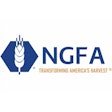
Wednesday’s signing of the United States-Mexico-Canada Agreement (USMCA) by President Trump increases hopes that 2020 will begin a stronger decade for America’s agriculture industry.
“There is definitely increased optimism on farms and ranches across America and we’re grateful for the advances, but we’re also realists eager to see results – especially for our dairy and wheat producers,” says American Farm Bureau President Zippy Duvall. “We know it will take time for the new deals to go into effect and translate into increased sales. We’re eager to get back into full swing supplying safe, high-quality food and agricultural products around the world.”
The USMCA is expected to increase agricultural exports from the U.S. by $2 billion and result in an overall increase of $65 billion in gross domestic product. Canada will increase quotas on U.S. dairy products, benefitting American dairy farmers by $242 million.
"USMCA is critical for America’s farmers and ranchers, who will now have even more market access to our neighbors to the north and the south," says U.S. Secretary of Agriculture Sonny Perdue. "I am excited to see the economic benefits of this agreement increase the prosperity of all Americans, especially those living in rural America."
Canada will also treat wheat imports the same as domestic wheat for grading purposes. Mexico has also agreed that all grading standards for ag products will be non-discriminatory.
“Wheat farmers and Mexico’s wheat buyers are very glad to see the cloud of uncertainty lifted from our trade relationship,” says U.S. Wheat Associates (USW) Chairman and Paulding, OH, wheat farmer Doug Goyings. “Replacing NAFTA without harm to the wheat trade relationship was a priority for all of us -– mission accomplished.”
USMCA retains tariff-free access to imported U.S. wheat for those long-time flour milling customers in Mexico, a crucial step toward rebuilding trust in the U.S. as a reliable supplier in this important, neighboring market. In addition, the USMCA makes important progress towards more open commerce for U.S. wheat farmers near the Canadian border by allowing U.S. varieties registered in Canada to receive reciprocal grading treatment.
Other measures that benefit the wheat industry include the agreement’s language around agricultural biotechnology which supports 21st Century innovations in agriculture and new language to strengthen disciplines for science-based SPS measures.
Trump’s signature was the final step in enacting the agreement in the U.S. Mexico approved the USMCA last year. Canada must still ratify the pact, which is expected to occur in the next few months. The agreement will take effect 90 days after all countries have approved it.
On the feed side, USMCA allows U.S. animal food producers to remain competitive in the region while strengthening regulatory engagement and commitments among the three countries.
The animal food industry has much at stake in the passage of USMCA, with exports to our neighbors more than quadrupling since the inception of the North American Free Trade Agreement over 25 years ago, growing from roughly $669 million in 1993 to over $3.2 billion today.
“We have advocated for a revised agreement that preserves our duty-free market access; addresses modern issues, such as sanitary and phytosanitary issues; and implements science-based regulations and regulatory cooperation and coherence,” says Constance Cullman, AFIA’s president and CEO. “These issues are of vital importance to our members and paramount to maintaining and enhancing the trade relationship our industry has with its two largest trading partners. We look forward to Canada ratifying the agreement in the near future and stand ready to participate in its implementation.”
USMCA comes on the heels of a string of trade successes. The China Phase 1 Agreement signed last month goes into effect in mid-February. The US-Japan Trade Agreement signed last fall went into effect this month.















